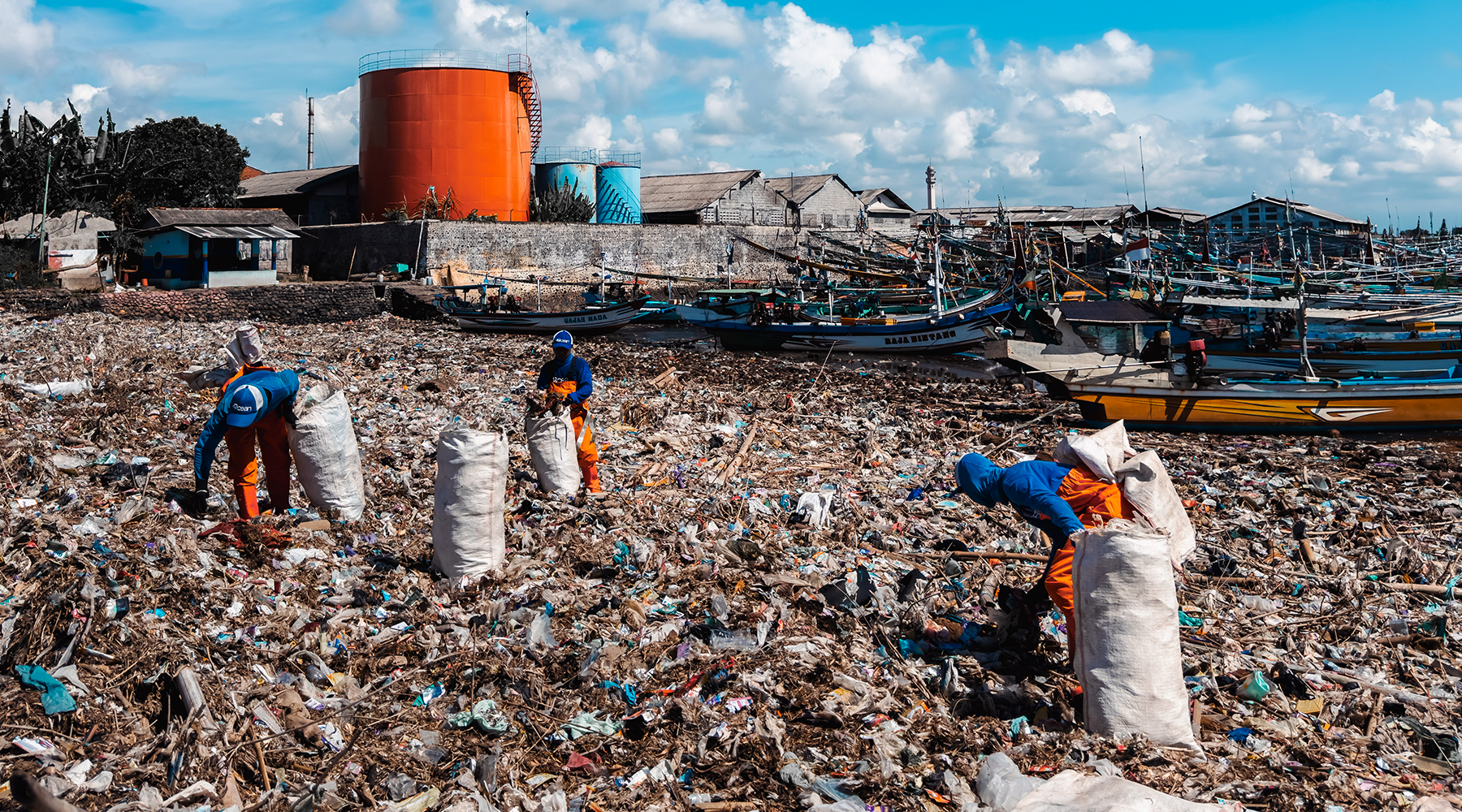6 MIN READ
5-20-2024
Fishing for Trash:
The Plastic Shores of Bago River
Joshua Restauro, 4ocean Story Editor
As more plastic sinks into ocean ecosystems, our economy and quality of life will sink along with it.
Banyuwangi is a town in the easternmost regency of East Java, Indonesia. The diverse natural scenery and rich culture of Banyuwangi attract tourists from all over the world. It boasts beautiful mountains, forests, and beaches, which are habitats for a wide range of species.
The pristine nature of Banyuwangi paints the place as a magical haven for adventurers, but the locals have been dealing with a colossal problem that affects their livelihood and health.
Popular beaches such as the Pulau Merah Beach have opened the eyes of more people to the plastic problem of Banyuwangi. Trash washed along shorelines welcomes the sight of visitors, potentially damaging the place’s eco-tourism.

It gets worse..
The local government confessed that there is no proper implementation of waste management throughout Banyuwangi. This causes the pollution of their rivers, beaches, and coastal communities with plastic.
Every day, the locals produce around 3000 pounds of waste, of which 33% is inorganic plastic. Without proper waste management facilities and education, the locals mismanage the majority of their waste, and 57% of it is burned.
The situation gets worse during “waste season” between the months of October and February, when plastic waste from the land enters the river and flows into the ocean.
But one particular river in Banyuwangi suffers more than the others. The 4ocean team has been cleaning Bago river for 2 months, and yet, the trash just keeps on piling up.

The situation gets worse during “waste season” between the months of October and February, when plastic waste from the land enters the river and flows into the ocean.
But one particular river in Banyuwangi suffers more than the others. The 4ocean team has been cleaning Bago river for 2 months, and yet, the trash just keeps on piling up.
The crew situated their cleanup operation at the shore where Bago river meets the sea. What was initially a hopeful task has almost become an impossible goal as they fail to completely clean up the place even after 40 days of work.
The plastic problem is so severe that you can barely see the sand under the layers of trash covering the shore. The local community, which heavily relies on sardine fishing, reported that their catch has become inconsistent and unpredictable.
The site of 4ocean’s operation in Bago river is located behind a sardine cannery. Local fishermen rely on the cannery for employment. But since plastic pollution has affected the number and quality of sardines in the sea, they fear for the stability of their livelihood.


A harrowing discovery…
A 2021 study by Cal State Fullerton revealed that there are microplastics found in the muscle tissues of Pacific sardines. These contaminated sardines will likely get processed into canned seafood and ingested by consumers.
The wild sardines caught near Bago river will transfer plastic up the food chain, causing health risks to humans and injury or death to wildlife. As more plastic sinks into ocean ecosystems, our economy and quality of life will sink along with it.
4ocean’s efforts to clean Bago river has motivated the government to assist us towards our vision of a cleaner ocean. The Banyuwangi government has also put up regulations to teach locals how to sustainably manage their waste from home and develop eco-friendly habits.
Currently, it may seem like there’s no end in sight to the ocean plastic crisis. Our cleanup operations may look in vain against the waves of waste that devastates the shores of Banyuwangi. But every action we inspire is a win in itself. The plastic created is no match to the indomitable human spirit.
We need your help. Every product you purchase funds the removal of 5 pounds of trash from the ocean, rivers, and coastlines.







